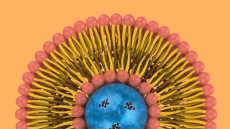Many UK kids are malnourished, says health expert
The comments follow the publication of a report on Friday that found a widening gap in average life expectancy and that of the poorest populations in England.
The report from the National Audit Office (NAO), which audited the Department of Health’s approach to tackling inequalities in life expectancy, found that the current average life expectancy has risen over the last decade to reach 78 years for men and 82 for women. However, the improvement rate in poorer areas has been slower, with life expectancy standing at almost 76 years for men and 80 years for women.
Nutrients for healthy development
According to Dr Sam Everington, a GP in Tower Hamlets, East London, the state of the nation’s diet plays a huge role in these findings. Children, in particular, are often not receiving the fundamental nutrients required for healthy development.
“Between one third and half of all children [in the area of his practice] are poorly nourished in some way. I include both obesity and nutrient deficiencies in that,” said Dr Everington.
Malnutrition of this sort leads to a host of health problems, he said. “In children, it’s very subtle – for example, you see lower development, lower academic achievement, poorer mental health and overall wellbeing.”
“If you haven’t got basic health sorted, you won’t succeed in other areas. But the thing about diet is that we can clearly do something about it. It’s the job of all of us to improve the general nutritional status of our children,” he told NutraIngredients.com.
Vitamin D and iron
According to Dr Everington, the most striking and frequent deficiencies he comes across in children visiting his practice are vitamin D and iron.
“Lack of vitamin D is the most common, with a lot of children we test having under half of the levels they should. Vitamin D deficiency is quite insidious in how it is manifested. It’s not easy to recognise and is often unappreciated and underestimated.”
There is currently no recommended daily allowance (RDA) of vitamin D in the UK for people leading a normal lifestyle. The RDA for iron is 8.7mg per day for men and 14.8mg for women. A reference nutrient intake (RNI) – which is the amount of a nutrient needed to meet the dietary needs of the majority of a population group – of iron for children is 6.1mg for children aged 4-6, and 8.7mg for children aged 7-10.
Life expectancy and diet
The 54-page NAO report, available here, makes no mention of improving the diet of the UK population, focusing instead on prescription drugs, healthcare and smoking cessation.
An NAO spokesperson told NutraIngredients.com that it focused on these three areas as these were the interventions identified by the Department of Health to reduce the life expectancy gap between different population segments. “We audit what the Department did to try to meet this target, their focus was not on dietary issues and so it was not addressed in our report which had a narrow scope.”
The Department of Health did not address the omission of dietary interventions from its approach, commenting instead that “the report refers to work carried out under the previous administration”. It said, however, that “more needs to be done to tackle the deep-rooted social problems that cause ill-health” and that “further details on the government’s public health policies will be published in due course”.











